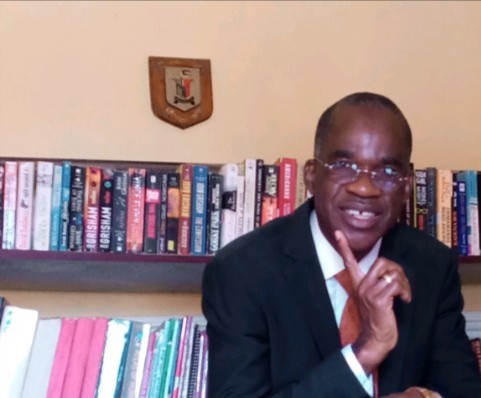Petroleum Industry Act: Oxfam, CISLAC, NOA Sensitises Oil Producing Communities
By Bashir Hassan Abubakar
In an effort to recreate more awareness and sensitise communities from oil producing regions, Oxfam in partnership with the Civil Society Legislative Advocacy Centre (CISLAC), in conjunction with the National Orientation Agency (NOA) have carried out a stakeholders’ dialogue on the Petroleum Industry Act (PIA).
At the just concluded stakeholders dialogue held recently in Delta State, Nigeria, Oxfam Country Director, Dr. Vincent Ahonsi said that following the Presidential assent to the Petroleum Industry Bill that transformed it into law in August 2021, stakeholders and communities have been grappling with understanding the contents of the law hence the civil society, the oil producing and host communities are yet to start organizing themselves to be fully engaged in the process.
Dr. Ahonsi said that the new law, which seeks to promote growth and eliminate uncertainties in the legal and regulatory frameworks of the petroleum industry, requires the understanding and engagement of all stakeholders for socio-economic and human capital development.
“The PIA provides the legal framework for the regulation of all the players in the Nigeria oil and gas sector. The Act has well spelt out provisions for streamlining roles and responsibilities of agencies and regulators with the proposed creation of the Nigerian Upstream Regulatory Commission and the Nigerian Midstream and downstream Petroleum Regulatory Authority as the main regulators of the downstream, midstream and upstream sectors”.
“It also provides for the transition of the Nigeria National Petroleum Corporation to Nigeria National Petroleum Company Limited. The new Nigeria National Petroleum Company Limited is anticipated to operate under the guidance of a board as a commercial entity”, said Ahonsi.
The Oxfam boss also said that provisions are also made for the establishment of the Host Community Development Trust Fund to provide funding for the development of oil producing communities and mitigate the risks for conflict and restiveness in the communities.
According to him, Oxfam in partnership with the Civil Society Legislative Advocacy Centre, in conjunction with the National Orientation Agency (NOA) have been holding sensitization and awareness dialogues, to discuss sections of the new petroleum law, highlight their importance and listen to community feedbacks, all towards engendering ownership of the new law, and buy-in of the communities in its implementation.
“This ownership of, and buy-in in the implementation of the PIA will help in no small measure to facilitate a reduction in Nigeria’s debt profile, curb food inflation, reduce inequality and reduce poverty”.
“Oxfam remains committed to working with Nigeria government, the private sector and the civil society towards achieving a sustainable, inclusive and just recovery, post COVID-19 pandemic.
“Oxfam is once again using this opportunity to call on Nigeria government not to listen to IMF’s counsel that West African countries should introduce austerity measures as a way to recovery”.
“Austerity measures as being advocated for by the IMF has the potential to further worsen current inequality and poverty; and its effects will be worst felt by the vulnerable and marginalized people, including women, older people, racial and ethnic minorities, informal workers and low-income families”, said Oxfam Country Director.
Part of the speech by Dr. Ahonsi, which was made available to our correspondent also quoted him as saying, “we are advocating for medium to long term recovery plans and interventions that will promote further fiscal and policy space that allows for an increase, rather than a decrease, in social spending, progressive tax policies that collect sufficient revenue and redistribute wealth fairly to all”.
“Oxfam will continue to support the government and the civil society on policies that advance gender justice, reduce inequality, and put people and the planet first”.
“I call on participants to kindly pay attention to presentations to be made here by subject matter experts, thereby improving their knowledge towards owning the process for meaning engagement”, said Dr. Ahonsi.
Our correspondent reports that the sensitization meeting was facilitated by Oxfam to enable oil producing community stakeholders to understand the inherent indicators and contents of the new PIA, and build their capacity to support government’s initiatives towards improving the economy, and reduce inequality and poverty.












Add Comment